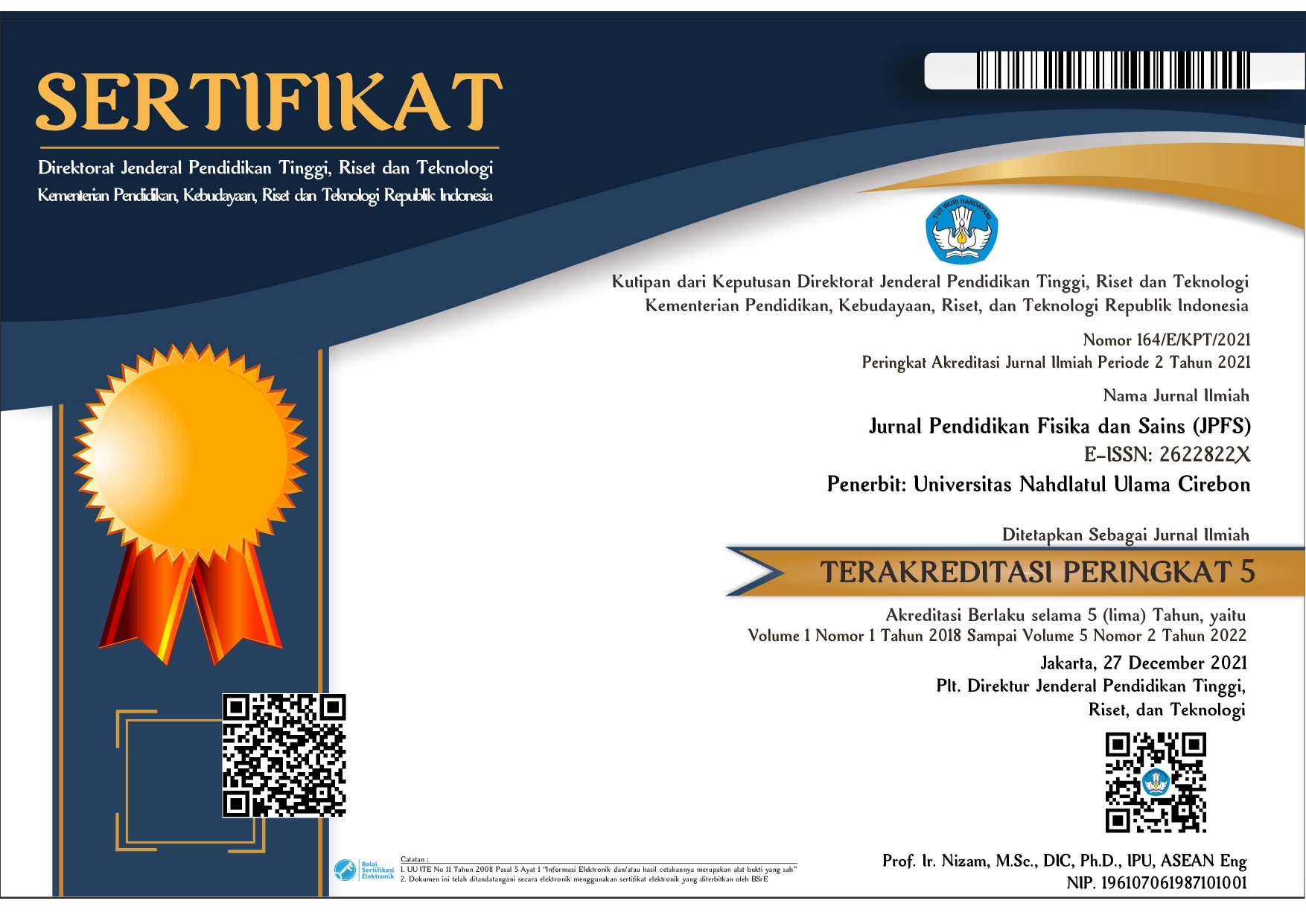Fabrikasi Perancah Berpori Hidroksiapatit dari Tulang Ikan Tenggiri dengan Alginat Sebagai Binder Alami: Sebuah Kajian Naratif
DOI:
https://doi.org/10.52188/jpfs.v3i2.82Abstract
Porous scaffolding is an alternative solution developed to assist the bone therapy process. Hydroxyapatite (HAp) is a widely developed material into porous scaffolding because it has good biocompatibility. As a maritime country, Indonesia has high fisheries potential. One potential maritime product waste that could be synthesized into HAp is mackerel bone because it contains high amounts of CaO. This narrative describes a potential method for HAp synthesis from mackerel fish bones and a fabrication method that can be applied to a porous scaffold. Alginate is a natural ingredient from brown algae, which can be used as a porogen to synthesize porous HAp. Because it comes from maritime-based natural materials, algae are relatively safe and easy to produce in Indonesia. It is hoped that from this study, a more comprehensive picture can be obtained related to the development of HAp-based porous scaffolding from mackerel fish bones so that it can be considered for further development.
Published
Versions
- 2020-12-02 (2)
- 2020-12-02 (1)
How to Cite
Issue
Section
Copyright Transfer Agreement
The Authors submitting a manuscript do so on the understanding that if accepted for publication, copyright of the article shall be assigned to Jurnal Pendidikan Fisika dan Sains (JPFS) and Physics Education Programs of UNU Cirebon as publisher of the journal.
Copyright encompasses exclusive rights to reproduce and deliver the article in all form and media, including reprints, photographs, microfilms and any other similar reproductions, as well as translations. The reproduction of any part of this journal, its storage in databases and its transmission by any form or media, such as electronic, electrostatic and mechanical copies, photocopies, recordings, magnetic media, etc. , will be allowed only with a written permission from Jurnal Pendidikan Fisika dan Sains (JPFS) and UNU Cirebon.
Authors are permitted to disseminate published articles by sharing the link/DOI of the article at the journal. Authors are allowed to use their articles for any legal purposes deemed necessary without written permission from the journal with an acknowledgment of initial publication to this journal.
Jurnal Pendidikan Fisika dan Sains (JPFS) and UNU Cirebon and the Editorial Board make every effort to ensure that no wrong or misleading data, opinions or statements be published in the journal. In any way, the contents of the articles and advertisements published in the Jurnal Pendidikan Fisika dan Sains (JPFS) are sole and exclusive responsibility of their respective authors and advertisers.






















